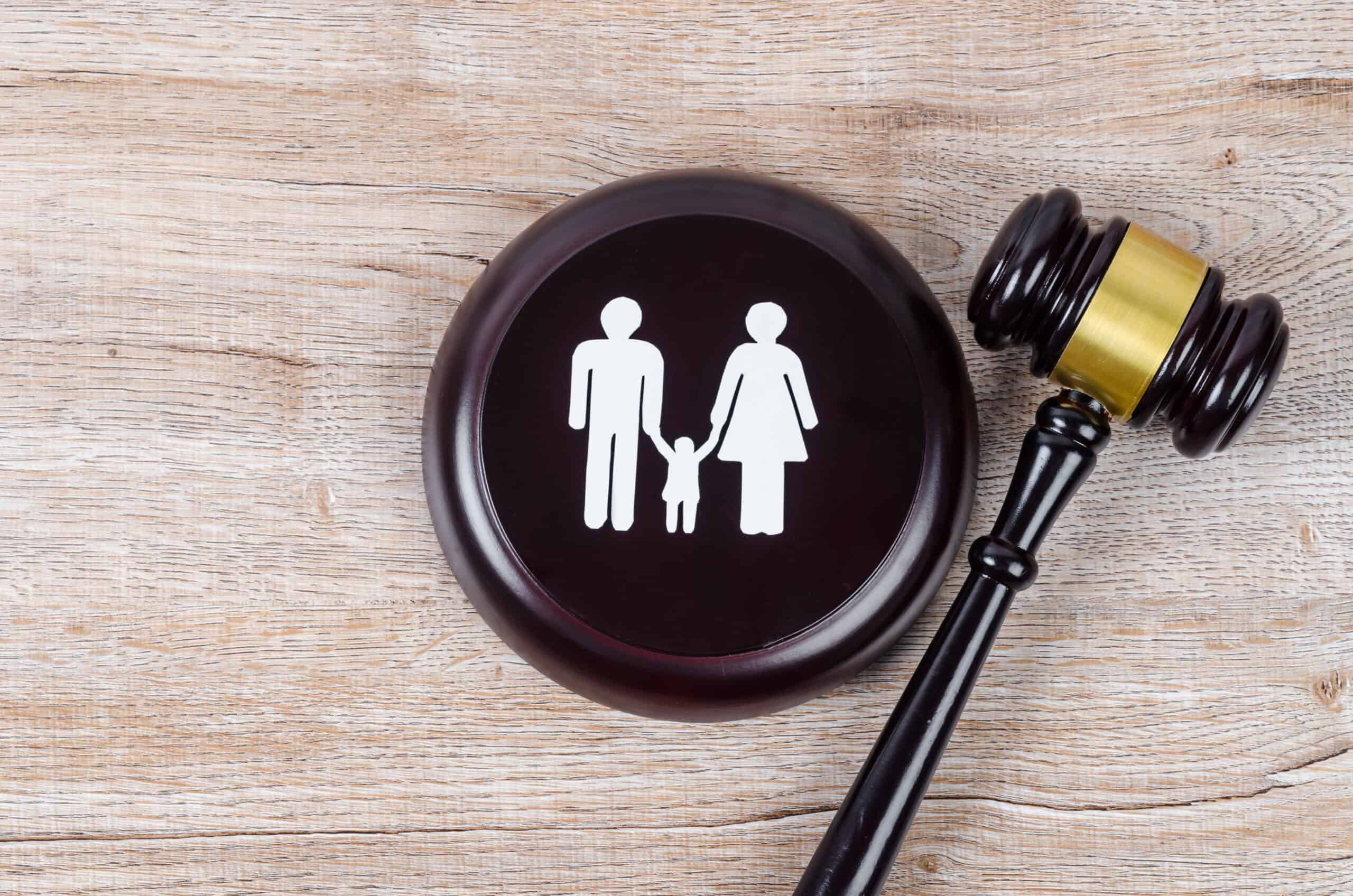Every parent wants the best for their child. Even if they don't want the best for each other. When push comes to shove and parents need to separate from each other. A lot more goes into the process than deciding who gets the couch and who gets the dining room set.
Obtaining full custody of a child can be a challenging and stressful experience which will almost always involve lawyers, legal proceedings, court dates, and a hefty amount of documentation. While it will be difficult to get full custody of a child depending on various factors, there are tactics and strategies that you can try to find success in the court system. Here are the general steps you will need to take to get full custody of your child.
Key Points of Obtaining Full Custody
- Receiving full custody of a child will differ between states. It's vital to research your state-specific laws.
- While you won't necessarily need a lawyer, having outside legal counsel is usually smart.
- It is important to come to court with all possible documentation of why you're the better parent.
- You can generally avoid going to court for custody and usually work it out with the other parent. However, you should still come prepared to fight for your child.
What is Full Custody?

©Anna Kraynova/Shutterstock.com
The first step in this long process is to get a full understanding of what full custody means and what it entails. By getting sole legal and physical custody, the child will live exclusively with you, and the other parent will only have visitation rights. This custody means that you will have full authority in medical care, education, and religious choices. Sole custody or full conservatorship will differ by state and it would be wise to research your local state laws to be as prepared as possible.
Note that full custody could mean that you get to make all of the decisions for the life and well-being of the child but that of course depends on the state. Sometimes, a parent may only have sole physical custody or sole legal custody. Meaning that your child may live with you, but you can’t make all of the decisions. Or, you can take part in legal decisions, but your child doesn't live with you. This is heavily dependent on the individual case. It is really important to know the differences before you move forward.
Keep in mind that there is also joint custody. This is when you and the other parent share responsibility for the child. The decision of where the child lives would be up to the court but there are cases where children split their time between both parents. For example, the first and third week of every month is spent at one parent's house and the opposite for the other parent.
How to Get the Best Chance of Full Custody of a Child
Obtaining sole custody will require you to present your parenting abilities, resources, and environment in the best light possible. Something important to note is that in male and female relationships, there could be a gender bias, and obtaining full custody as the father maybe prove to be more difficult. As the Chicago Tribune reported that over 90% of custodial hearings end in the mother receiving full custody. However, 60% of the time, the father would win full custody if they asked the court for it.
With that said, these scenarios will give you the best opportunity to get full custody of the child:
- You have proof that the other parent has neglected, abandoned, or abused the child.
- The other parent is unable to adequately raise and supervise the child.
- You have a protective or restraining order against the other parent, and you believe that they pose a threat to the child.
- You have a more flexible work schedule than the other parent, so you have more time to care for the child.
- The child is old enough to make a clear choice about the parent that they rather live with, and your particular state gives your child the right to express their input.
- Your child has already been living with you, and they are currently thriving in your care.
- The child has special needs, which you are better equipped to handle.
- You have been the primary caregiver, and the other parent has so far had minimal involvement in their life.
- You believe that you are more equipped to ensure the child’s educational success. Some of this might boil down to where you live and the educational resources you have access to.
- You’re more financially stable than the other parent. However, it should be noted that while you might be more financially stable if you are unable to provide the time flexibility to care for your child, this might work against you as you might be required to pay child support payments. Always consult with your legal counsel on the best course of action.
- You have a more stable home environment in which you can provide plenty of food, shelter, and attention.
- The other parent has proven issues, such as a history of alcohol abuse or mental health issues, that prevent them from properly caring for the child.
The Process of Gaining Full Custody
In order to get full custody of a child, you need to do more than just request it from the court. Instead, you might go through the family court system. Especially if the other parent chooses to fight. Here is a general rundown of how to go through the process and have a chance for success:
Be Prepared
If you really want to have full custody of a child, then you need to spend a lot of time preparing and getting all of your facts straight. You will also need to prove what you say. Compile all of the documentation that you have that will prove that you have the capability of raising the child on your own. You can prove that with signed affidavits, photos, and financial statements.
Be Professional
Since you are in a court of law, it is essential that you are 100% honest during the proceedings. Do not try to falsify information or lie in order to try and prove that you deserve full custody. If you do, and the court finds out, then you may be in contempt of court or even perjury depending on the court and the lie. Even worse, you are almost guaranteed to lose the court battle.
Also, although you may point out why you are more capable of caring for the child or providing for them financially, it is essential that you do not belittle or insult the other parent. Doing so will show you in a bad light, and the behavior could hurt your chances.
How is Custody Determined?
The family court will listen to the testimonies and statements of both parents in order to make their final decision. In many cases, the court may also make a decision based on the following:
- The child’s gender, background, age, and personal health.
- If the child has special needs, then they will factor in which parent is better equipped to handle those needs.
- Environmental factors, such as the crime statistics in the town where each parent lives or the quality of the schools, proximity to extracurricular activities, etc.
- Both parents' history of care for the child and if there is any provable abuse from either or both parents.
- The physical and mental health of you or the other parent.
- The level of attachment to their siblings or other family members that may be living in your home.
Tips for Getting Full Custody of a Child

©fizkes/Shutterstock.com
That was just the basic process. Every court and every state will be different so be sure to research your local state's laws and court proceedings. That being said if you know yourself to host a better environment for your child to grow up in. Here are some tips to aid you in your custodial hearings.
Hire a Lawyer
It is not required to have a lawyer to get custody of your child. Still, if you feel the other parent will put up a fight then it is a good idea to hire an attorney.
While 91% of child custody cases are agreed upon outside the courtroom according to Lackey and Lackey PLLC. This doesn't mean that your former partner will agree to give up the rights to a child over coffee.
There are lawyers that specialize in child custody. They are knowledgeable about state laws and the process. Lawyers are also experts in complicated legal language that can be discussed during this type of hearing. If you get one of these terms wrong, it could be big trouble. So, it is better to have a professional.
Document Your Parenting
If you currently spend a lot of time with your child, it is a good idea to document all relevant activities you do with them. This would include education, after-school activities, extracurricular projects, and anything you feel is appropriate. You don't want to be drawing a blank when the judge asks you about your child.
In addition to writing it all down, you should also take pictures. Photos of you and your kids thriving, smiling, and being happy while doing a multitude of activities can go a long way. As mentioned before please consult with your legal counsel for the best course of action.
Use Credible Witnesses
Bringing in character witnesses during the hearing to help you to prove your case. However, if you choose to do so, choose them wisely. Good examples could be a good coworker, a member of your religious community, or someone from the PTA board. Have them provide a clear and meaningful statement, and they could make all of the difference.
Realize That it may be a Long Process
In most cases, child custody is not an open-and-shut case. Instead, it could take days or weeks. The most important thing is that you keep your composure through it all. Answer the questions the best you can and be honest at all times. It can get tense at times, but remember that you must keep your cool. Your positive demeanor could be what gets you full custody.
Conclusion
As you can see, there is a lot that goes into getting full custody of a child. While it may not be easy, the most important things you do in life never are. If you feel like you are the better parent and that your child needs to live with you to truly thrive, then you must do what is right. Consider the tips discussed here, and you have a fighting chance.
If you have any serious legal matters in your case, please consult with your legal counsel as this article is only meant to aid your research and is not designed to be legal advice.
The image featured at the top of this post is ©iStock.com/Gam1983.
